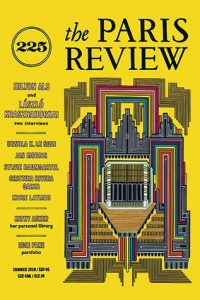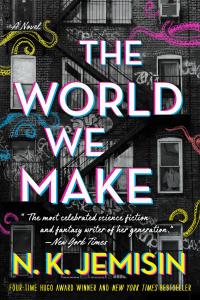Paul Di Filippo reviews Norman Spinrad
Whenever discussion turns to candidates for the next SFWA Grandmaster Award, the name of one author who is fully entitled to such a distinction is notably missing. I refer to Norman Spinrad. After a career that began in 1963—that’s fifty-plus years and counting, folks—and which includes epochal work during the seminal New Wave movement; a continuing stream of top-notch, impassioned, always varied novels and stories thereafter; two stints as SFWA President; and a wealth of critical essays that have helped to elucidate the intellectual and narrative storyspace occupied by fantastika—well, one would think such credits would render the possessor a shoe-in for the honor.
But giving Norman Spinrad the Grandmaster title would be like sitting the court jester on the throne; like taking a rebel leader from the jungle and putting him in the Presidential palace; like making Mother Teresa the Pope. Institutions would be upended, black would be white, and hogs would grow pinions.
Although, come to think of it, this barrier of propriety and conventionality has already been busted with the annointment of Harlan Ellison, a coeval bombthrower and gadfly. So what is SFWA waiting for?
In any case, until that date we shall have to content ourselves with new books from Spinrad—although even that recourse is problematical, since he’s had trouble getting traditional publishing deals lately, and had to self-publish his last novel, Osama the Gun.
But at PM Press, Spinrad has found a congenial home, due to that firm’s progressive politics. His latest offering is part of PM’s Outspoken Authors imprint. Helmed by Terry Bisson, this series now runs to fourteen volumes, and includes work from such luminaries as Ursula K. LeGuin, Rudy Rucker and Bisson himself. Each volume features some particular arrangement of stories, novellas, non-fiction and other material, serving as a good introduction to the oeuvre of each “outspoken author.”
In Spinrad’s case, we open up with a galloping and pugnacious novella titled “Raising Hell.” Plunged as abruptly as the protagonist into the scenario, we discover that union organizer Dirty Jimmy DiAngelo has died and gone to the quintessential Hell of Christendom. Manned by large scarlet demons with taser pitchforks, and ruled over by a discontented Satan, aka Lucifer, the place is fully virtual these days, a kind of MUD with an infinite number of rooms wherein individual tortures can be enacted. For his earthly sins, DiAngelo is sent to an infinite boiler room to shovel coal uselessly for all eternity. He finds himself working shoulder-to-shoulder with Jimmy Hoffa and other labor organizer mentors and peers. In a short time, DiAngelo has convinced his fellow souls to go on strike, enlisted the demon guards in his cause, and, not without a struggle, brought Satan onboard as well. We leave the tale trembling on the edge of further posthumous revolutions.
I seem to recall a story that featured a similar premise, titled “The Devil and Democracy” by Brian Cleeve, appearing long ago in the November 1966 issue of F&SF (where, curiously enough, young Spinrad had a piece as well). But even if the two stories share a humorous theme, Spinrad does something new here, and that is to offer an existential quandary with broader, real-world implications.
DiAngelo has trouble motivating the demons to strike, since they are content with their lot and desire nothing. But then he conceives of teaching them “to want to want.” In other words, to ask for the endowment of free will. At the end, even Lucifer is infected with this new and dangerous meme, and endorses the rebellion.
As the next piece, “The Abnormal New Normal,” makes explicit, Spinrad is offering in his fiction his allegorical take on real life matters, and a prescription for change. This essay is a trenchant analysis of the roots of the planet’s current economic malaise and inequality; a characterization of our current fix as an unsustainable “economic singularity;” and a spotlight on a way out. But that way out involves first a mental paradigm shift: wanting to want to change. We will always live in Hell until we decide otherwise, Spinrad avows.
The third item that rounds out the volume is a dialogue between Spinrad and Bisson fittingly dubbed “No Regrets, No Retreat, No Surrender.” We see Spinrad recalling with pleasure certain glorious highlights of his past, but looking around at the present and the future with equal zest. In his seventies, he remains as feisty, energetic and dedicated to his vision as ever.
If we cast a critical eye back at Spinrad’s career, we see a portrait of an artist-agitator, someone engaged with topical issues and bent on encapsulating them in dramatic form. With novels such as Bug Jack Barron and The Iron Dream and Greenhouse Summer, Spinrad has repeatedly raised his voice to focus our attention on important societal matters. Likewise in his critical essays, where he has held the feet of fantastika to the fire of relevance and craft. But he has not been content to write mere propaganda, because that would dishonor the medium itself. And so he delivers the best of both worlds: engaging tales populated with flesh and blood people that leave seeds of doubt and speculation buried deep in our minds.







